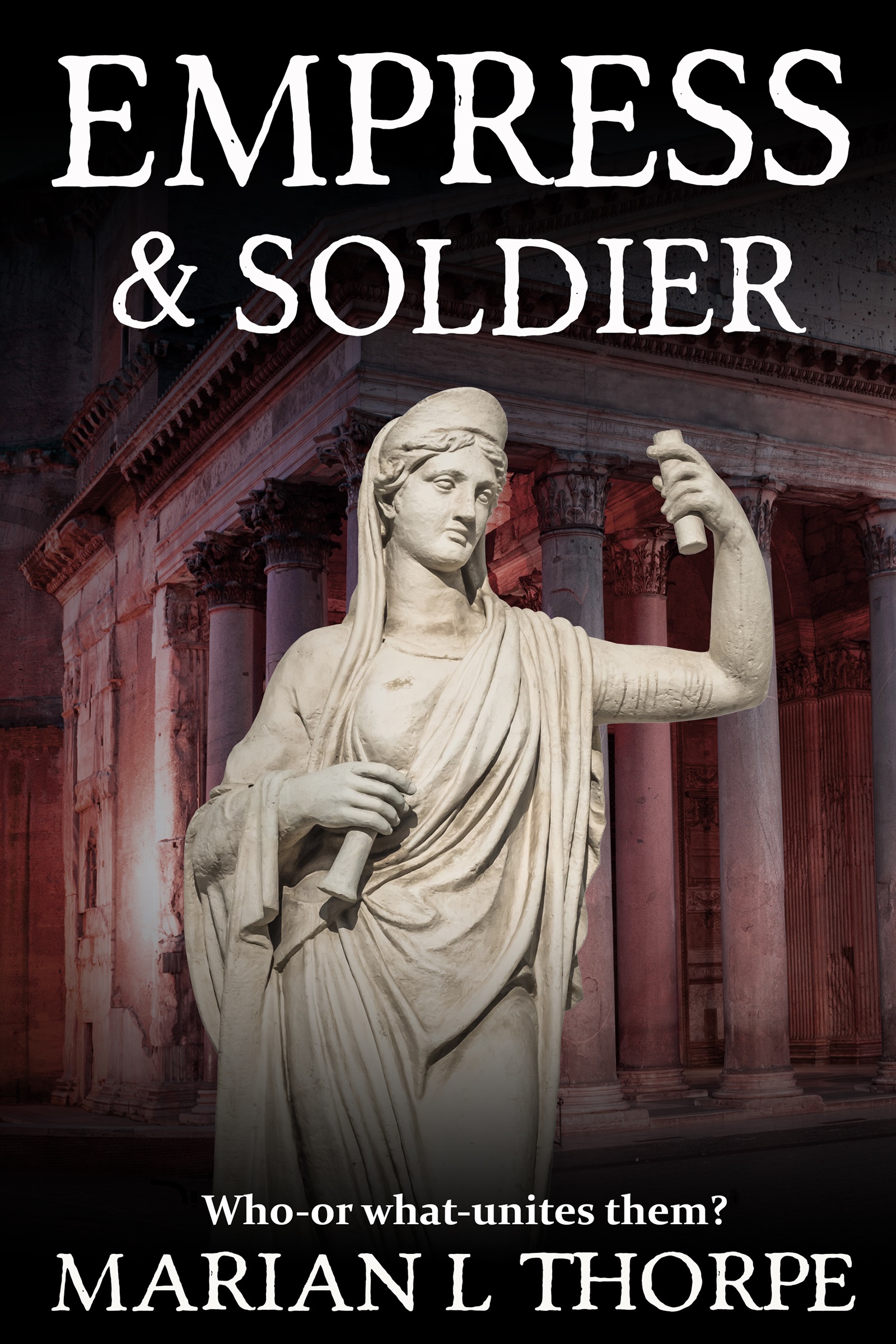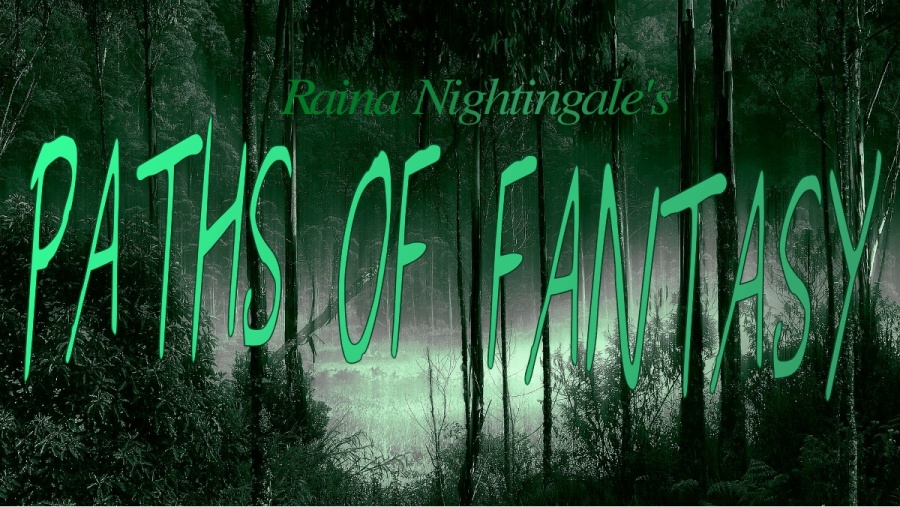Empress and Soldier
 Series: Empire’s Legacy (Standalone)
Series: Empire’s Legacy (Standalone)
Author: Marian L Thorpe
Genre: Historical Fantasy
Book Description:
A boy of the night-time streets. A girl of libraries and learning.
Druisius, the son of a merchant, is sixteen when his father’s cruel order drives him from home and into the danger and intrigue of the military.
Eudekia, a scholar’s daughter, educated and dutiful, is not meant to be a prince’s bride. In an empire at war, and in a city beset by famine and unrest, she must prove herself worthy of its throne.
A decade after a first, brief meeting, their lives intersect again. When a delegation arrives from the lost West, Druisius is assigned to guard them. In the span of a few weeks, a young captain will capture the hearts of both Empress and soldier in very different ways, offering a future neither could have foreseen.
A stand-alone novel that can also serve as a second entry point into the Empire series. No previous knowledge of my fictional world is needed.
Review:
Note: Before I get into the review, I should remind everyone that historical fantasy is not my primary genre of interest.
Empress and Soldier is written in a dual 1st person point of view, with Druisius’s point of view written in a conversational present tense. This is well-done. Knowing Druisius the little bit that I do from the other books, I felt within paragraphs – maybe less – that this voice was his and absolutely suited him, and it was very easy to read, so that otherwise I hardly noticed it.
However, this book had some difficulty holding my interest, unlike the others. While Druisius felt exactly like Druisius to me, and I enjoyed his perspective a great deal to a point, there came a time when I was bored by it, feeling like I gained no deeper insight to his character than I already had from the previous books, but mostly more details about that journey that did not provoke me to consider any questions that are near to me from a possibly fresh angle. Those for whom this is the first book likely will not feel this way, nor will those with a deeper connection to his experience, but I already knew a lot of what’s shaped him, in the general, and a rough, general idea of how he copes and how a particular meeting and man – or two men – changed the direction of his life quite a bit. But Druisius is one of those characters whose journey and coping mechanisms just don’t touch on those themes of life that capture my attention over and over again in a way I can relate to, and some of his coping mechanisms – including a somewhat ‘casual’ though that seems the wrong word, approach to sex that involves some sado-masochistic tendencies – is something that, while I can definitely tolerate it in a character, and while nothing is described in detail, it runs through his thoughts almost every other heartbeat in some sections of the book, and after a while that got uncomfortable or just irritating for me to read, perhaps contributing a great deal to the boredom I experienced.
As for the other perspective, Eudekia’s, I never felt her very strongly. Some passages were fun to read, I rather liked the prince-and-then-Emperor whom she falls in love with and marries – Philitos – and there were some fun philosophical conversations, as well as thoughts about the implications of responsibilities or duties at times. However, for the most part I just did not “see” Eudekia. Some of that may be that her journey through the story did not touch on the themes that resonate with me in a way I can follow, either, but I think it was complicated by some elements of the setting and her behavior as Empress. When things like games in the arenas (clearly modeled on the Roman Colosseum) appeared, I couldn’t see the characters past my feelings about that (this is a thing about me; there were not any problematic scenes per se).
But I was left feeling like I did not know Eudekia at all, and I didn’t feel much towards or through her. Given the depth I have felt and seen in the other books I have read by Marian, I rather suspect there is more depth here, and that for people whose relationship to life touches on certain themes, there might be a great deal that is provocative and can provide substance for thought that I am simply oblivious to – but I am oblivious to it, and therefore cannot speak to whether it is there or not.
I found the book capturing my attention without effort at the end, however. Characters I know already from the other books are present there, such as Cillian, and the interactions in and around him were very interesting to me, as I gleaned more insight from them into the man that he is and the choices he has made, and what he suffers. Furthermore, Druisius’s relationship with Sorley and Cillian and his interactions with them is fraught with pain, and with thoughts that are deep, for all that they are not expressed or developed through many or philosophical words, and the character growth is palpable. The pain and contrast of experience, and a heart awakening with a new love or two, throbs through simple sentences that mean all the more for being terse.
In a lot of ways, I really like Druisius’s point of view, and even the way he speaks about himself: “Not hiding my disgust now. He could have me punished. I seem not to care.” There is a great deal of meaning, many implications, in his choice of words, even when there does not seem to be, and often it opens areas to be explored. And I loved the way that he changes – and allows himself to change, even embraces the changes – without requiring that he understand the changes in himself, even when he seems a bit bewildered by them. It seems to me there is a deeper understanding to be discovered here, that is often hidden or obscured by more intellectual and articulate kinds of understanding.
There were some things I did not understand, specifically relating to the famine. Eudekia, as Empress-Consort, is co-leader of a movement for simplicity, and there is a great deal of focus on the wealthy dressing simply. I would, perhaps, have expected to see more focus on sharing their food, both the substance and the nutritional bits, in line with a quote from another book I once read, to the effect that it is the king’s duty to wear the gaiest garments and laugh the loudest over the scantest meal in times of famine. Since which piece of clothes you take from your wardrobe for the day does not have a direct connection to how much food there is for yourself – or others – to eat (though commissioning a new piece might cost valuable labor!).
Perhaps, sometime I will open up the book again, and see if a different mood allows me to get more out of it.

Pingback: The Once Upon A Time Book Tag – Enthralled By Love
Pingback: Book Review: Empire’s Passing (Empire’s Legacy) by Marian L Thorpe – Enthralled By Love